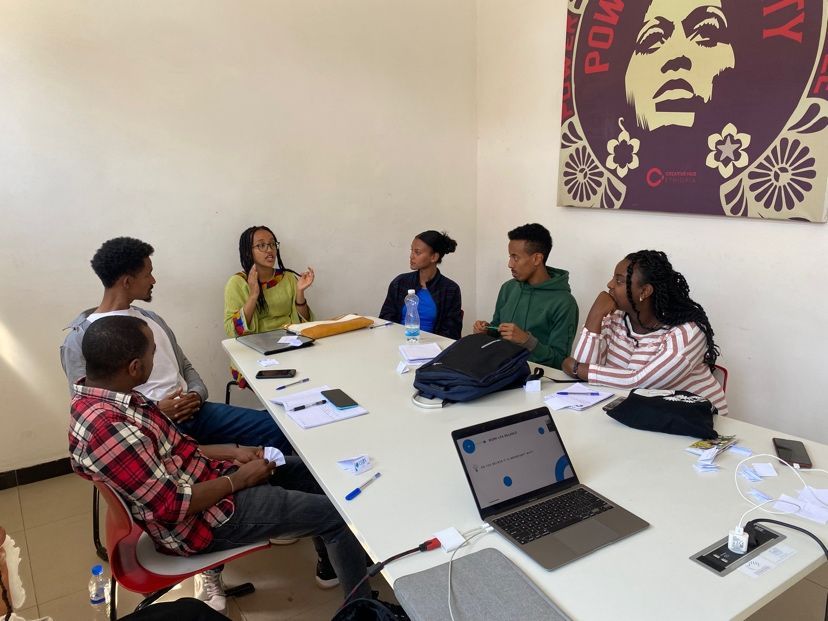Progress for 0 ad
Progress for 1 ad
Progress for 2 ad
Progress for 3 ad


Kaleab Girma
Addis Ababa, Ethiopia

With the aim of enhancing accessibility to therapy and mental health support, a local startup has introduced an online psychotherapy platform called Lssya on December 1, 2023, that connects users with psychologists virtually.
Catering to a wide range of mental health concerns, including anxiety, depression, stress, relationship issues, trauma, and grief, psychotherapy on Lssya ( www.Lssya.app ) is conducted through secure chat messaging, voice messages, and videoconferencing.
“Therapy should be accessible to everyone. Regardless of physical location or circumstances, our platform enables you to access therapy sessions from anywhere in Ethiopia—breaking through the barriers of long commutes and wait times,” said Lidia Solomon, founder and CEO of Lssya.
Focusing on mild cases that can be resolved through communication without the involvement of medication, Lssya is fully automated and includes customer support. The platform operates in two languages: English and Amharic, with plans for future expansion into additional languages.
Users onboard Lssya by signing up and filling out their initial form. The startup then identifies the best-matching therapists based on the answers provided. Users can either select from these recommendations or browse manually, view available time slots, book a session, and make a purchase. The users and the therapist are then connected to the platform at the scheduled time.
Each therapy session lasts 60 minutes, with a recommended frequency of one session per week. With an in-house team of 13 people, Lssya has onboarded 15 licensed therapists and aims to expand its pool.
Lidia shared with Shega the inspiration behind Lssya, reflecting on her high school experiences.
“In high school, I faced bullying, and things were not going well. Fortunately, I had the opportunity to see our school guidance counselor, and she was incredibly helpful,” said Lidia.
However, Lidia notes that other students were not comfortable going to the counselor’s office to talk, even though they wanted to.
“As it was a school setting, it became well-known when students entered the school guidance counselor’s office, and rumors started. That’s when I started to think of a solution for such a problem and decided to address it myself through an online platform after being introduced to programming in high school,’ ” she added.
The name of the platform originates from its focus on anonymity. Lssya (ሊስያ) is an abstract word. “We wanted people not to associate the service solely by looking at its name,” states Lidia.
While pursuing her BA degree in computer science, Lidia worked on her startup. Her journey was further supported by multiple incubation programs. In 2022, Lidia’s startup received a US$5,000 grant and training from UNDP to help launch the business.

According to Lidia, Lssya also provides additional income for psychologists. To join Lssya, therapists create accounts, provide necessary information, and seek approval. Once approved, they set available slots, a minimum of 10 per week, for users to book.
Clients have two options for booking therapists: either booking a single session or recurring ones. If users choose the recurring option and book the slot, their session continues with that therapist, allowing them to pursue additional sessions as needed and agreed upon with the therapist.
Lssya charges 1000 birr per session, offering a 50% discount for students. According to Lidia, the market price for a one-hour session ranges between 1000 and 1500 birr.
“Currently, there is a shortage in the supply of active professional psychologists and counselors. For Lssya to be a viable platform for such professionals, we have to compete with the market price,” noted Lidia, explained their pricing strategy.
The startup follows a pay-as-you-go model, allowing users to purchase sessions, with payments processed through Chapa. Profits are shared with the therapists.
Before the Lssya website was launched, in a pilot phase, Lssya ran a Telegram channel to gauge interest in the service. It onboarded volunteer psychologists and provided the service for free. The Telegram channel successfully served 1500 users, according to Lidia.
Regarding the effectiveness of online psychotherapy, Lidia states that it could be as helpful as physical ones.
“The consensus favoring physical visits stems from the belief that they foster emotional connections. However, studies indicate that online platforms are also proven to be effective,” Lidia told Shega.
“Considering the Ethiopian context, where some individuals are uncomfortable visiting offices for therapy, we are mainly bridging that gap,” added Lidia.
According to a 2022 article published by the International Journal of Mental Health Systems, stigma is a critical issue that hinders access to mental health services in Ethiopia. The paper states that ‘there is widespread stigma and discrimination in Ethiopia which has contributed to under-utilization of available mental health services in the country.
“This should be addressed with contextually designed and effective stigma reduction interventions that engage stakeholders” adds the paper.